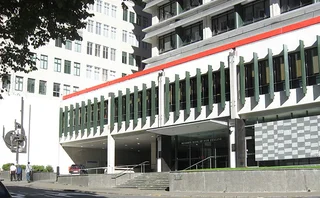
Fed ramps up bank support to $75 billion
The US Federal Reserve has increased the scale of its Term Auction Facility (TAF), intended to provide extra liquidity in the securities market, and has relaxed its criteria for collateral in another support, the Term Securities Lending Facility (TSLF).
The TAF was set up in December 2007 to support depository institutions with 28-day discount-rate loans. At first it issued only $20 billion in loans, but this amount has since been increased - yesterday's auction offered loans worth $75 billion, up from $50 billion two weeks previously on April 21. Demand for previous facilities has been strong - banks applied for a total of $88 billion in loans on April 21 - and today the Fed reported it had received $96.6 billion in applications for the $75 billion offered yesterday.
The Fed will also back increased lending by the European Central Bank (ECB) and the Swiss National Bank (SNB) by offering them swaps worth $50 billion and $12 billion respectively, up from $30 billion and $6 billion, to back up their own US-dollar auctions.The ECB said it would increase its fortnightly auctions to $25 billion and the SNB from $6 billion to $12 billion.
The Fed also announced it would extend the TSLF to accept AAA-rated asset-backed securities as well as mortgage-backed securities and collateralised mortgage obligations, starting with this week's auction. In contrast to the TAF, the TSLF has seen weak demand - the last auction, on May 1, attracted only $24.1 billion in bids compared to $25 billion offered.
The news implies that the Fed, like other central banks, believes the credit crisis still has some way to run. The London interbank offering rate (Libor) remains high, at 2.7575% today (three-month US dollar rate). And the Bank of England, although its latest Financial Stability Report asserted subprime-related assets had been written down too far, also introduced a new £50 billion liquidity injection last month.
A Fed survey published yesterday found that US banks were still tightening their mortgage lending standards. Few banks are still prepared to make subprime loans at all, and standards on all forms of consumer credit, including home equity loans and credit cards as well as mortgages, have tightened significantly since the start of the year, the survey said.
See also: BoE reveals £50bn liquidity facility
ECB takes further steps to improve liquidity
Central banks offer $20bn auctions to revive liquidity
Only users who have a paid subscription or are part of a corporate subscription are able to print or copy content.
To access these options, along with all other subscription benefits, please contact info@risk.net or view our subscription options here: http://subscriptions.risk.net/subscribe
You are currently unable to print this content. Please contact info@risk.net to find out more.
You are currently unable to copy this content. Please contact info@risk.net to find out more.
Copyright Infopro Digital Limited. All rights reserved.
As outlined in our terms and conditions, https://www.infopro-digital.com/terms-and-conditions/subscriptions/ (point 2.4), printing is limited to a single copy.
If you would like to purchase additional rights please email info@risk.net
Copyright Infopro Digital Limited. All rights reserved.
You may share this content using our article tools. As outlined in our terms and conditions, https://www.infopro-digital.com/terms-and-conditions/subscriptions/ (clause 2.4), an Authorised User may only make one copy of the materials for their own personal use. You must also comply with the restrictions in clause 2.5.
If you would like to purchase additional rights please email info@risk.net
More on Central banks
Global investment outlook: 2026 and beyond
Broadening, steepening and weakening: Franklin Templeton’s top investment ideas for 2026 and beyond
Central bank watch: Biased to ease, for now
A mid-year review of the monetary policy outlook for G10 central banks, India, China and South Korea
Adopt FX code or face regulation, warn central bankers
Global code of conduct must be adopted, Schiavi and Debelle insist
Malaysia central bank: credit reporting could unite Asean markets
Asean Economic Community faces challenges, says deputy governor Muhammad bin Ibrahim
BoE's Carney: liquidity support for CCPs is a 'last-resort option'
BoE governor insists clearing houses must have enough liquidity to cope with default of two big member firms
BoE deputy governor Paul Tucker quits after 33 years
Deputy governor is bound for academia in the US after helping with transition to new Carney regime
Local regulators push for consistent standards across Asean region – Thai SEC interview
Underpinning the integration of regional capital markets is a major concern for Vorapol Socatiyanurak, secretary general of Thailand's Securities and Exchange Commission
New governor signs revised policy target agreement in New Zealand
The Reserve Bank of New Zealand’s policy targets agreement will come into effect on the same day Graeme Wheeler takes over as governor; document includes "stronger focus" on financial stability







